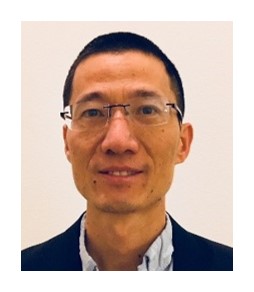November 7, 2019
1:00am – 2:00am
43-105 CHS, Center for Health Sciences UCLA
Yinsheng Wang, PhD
Professor of Chemistry, University of California, Riverside
About the lecture: Exposure to environmental toxicants and internal metabolism can both give rise to DNA damage. If not repaired, the DNA lesions may give rise to genomic instability by impeding DNA replication and transcription and inducing mutations in these processes. In this presentation, I will discuss our recent efforts on the development of a plasmid-based shuttle vector assay, together with mass spectrometry analysis, for examining how structurally defined DNA lesions inhibit DNA replication and transcription, and induce mutations in human cells. By combining with CRSIPR-Cas9-mediated genetic ablation of translesion synthesis (TLS) DNA polymerases and DNA repair enzymes, the method will reveal the roles of these proteins in supporting the replicative/transcriptional bypass and repair of DNA lesions in cells.
About the speaker: Yinsheng Wang received his PhD degree from Washington University in St. Louis after obtaining his BS and MS degrees from Shandong University and Dalian Institute of Chemical Physics, respectively. He joined the faculty of the University of California Riverside in 2001, where he is now a Distinguished Professor and Donald T. Sawyer Endowed Founder’s Chair in Chemistry. Yinsheng’s current research involves the use of mass spectrometry, in conjunction with synthetic organic chemistry, molecular biology, and genetic/genomic tools, for examining the occurrence, repair and biological consequences of DNA damage. His research group also employs quantitative proteomic approaches for interrogating metabolite- and nucleic acid-binding proteins. Yinsheng has trained or in the process of training of over 70 Ph. D. students and post-doctoral fellows, and he has co-authored more than 270 research articles. Yinsheng became a fellow for the American Association for the Advancement of Sciences in 2012, and he was the recipient for the inaugural Chemical Research in Toxicology Young Investigator Award, the 2013 Biemann Medal, and 2018 EAS Award for Outstanding Achievements in Mass Spectrometry. He is now an Associate Editor for Chemical Research in Toxicology.
Supported by the UCLA NIEHS Training Grant in Molecular Toxicology T32ES015457.
For more information, please contact Dr. Oliver Hankinson at OHank@mednet.ucla.edu.

